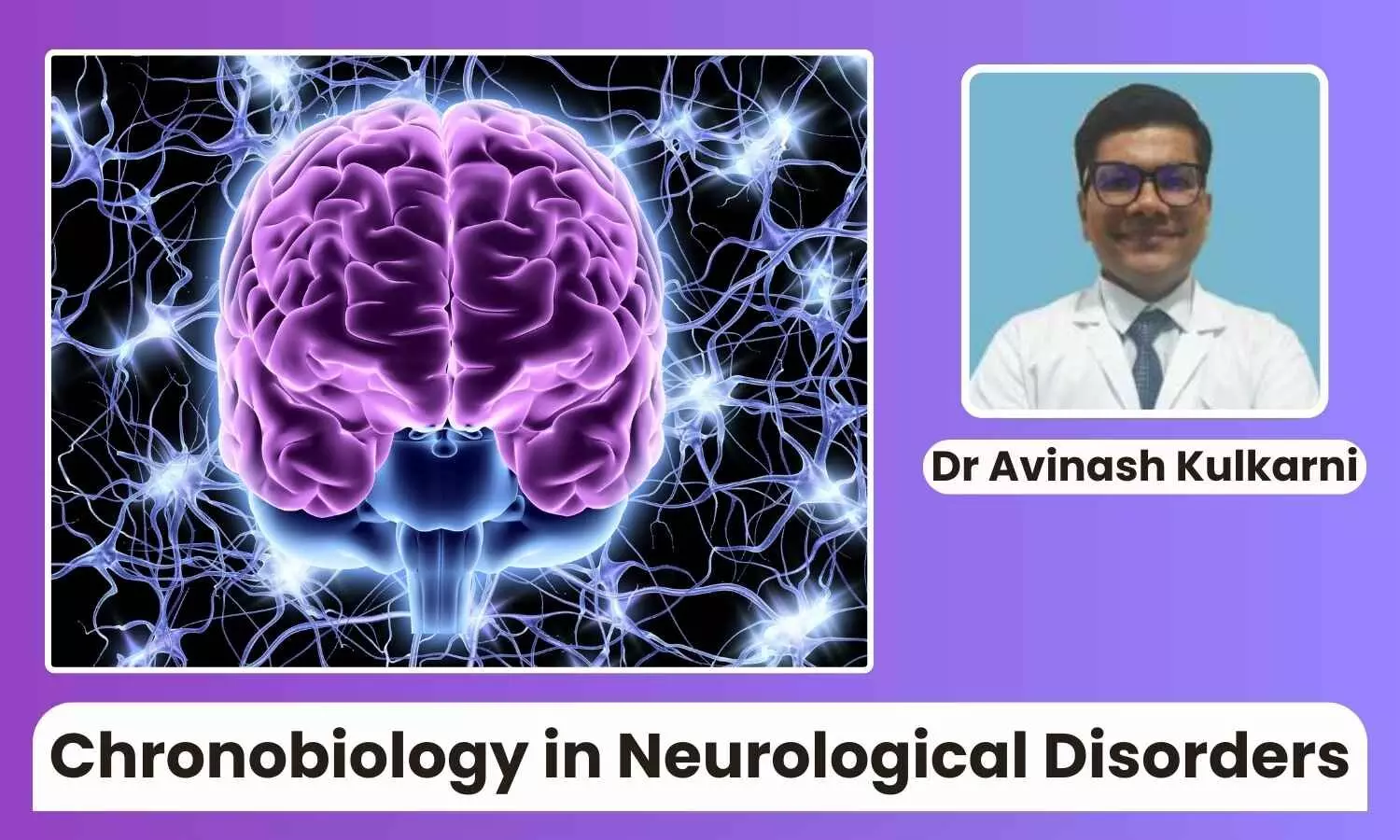Chronobiology in Neurological Disorders: Understanding Impact of Circadian Rhythms - Dr Avinash Kulkarni

The human body operates on an intrinsic biological clock known as the circadian rhythm, regulating vital physiological processes such as sleep-wake cycles, hormone secretion, metabolism, and cognitive functions.
Disruptions to these rhythms have been increasingly linked to neurological disorders, including epilepsy, Parkinson’s disease, and multiple sclerosis (MS). Understanding chronobiology, the study of biological rhythms, and its impact on neurological conditions may provide novel insights into treatment and disease management strategies.
Circadian System and Brain Function
Circadian rhythms are governed by the suprachiasmatic nucleus (SCN) of the hypothalamus, which synchronizes peripheral clocks throughout the body. These rhythms influence neurotransmitter activity, synaptic plasticity, and neuroinflammation, playing a crucial role in neurological health.
External factors such as light exposure, sleep disturbances, and irregular lifestyles can disrupt this delicate system, exacerbating neurological symptoms and disease progression.
Circadian Rhythms in Neurological Disorders
Epilepsy and Chronobiology
Epileptic seizures often exhibit rhythmic patterns, with specific seizure types occurring at certain times of the day or night. Studies suggest that the SCN influences neuronal excitability, making individuals more prone to seizures at particular circadian phases.
Moreover, sleep deprivation, a known trigger for seizures, alters circadian regulation and worsens seizure control. Optimizing antiepileptic drug (AED) administration based on an individual’s circadian rhythm may enhance treatment efficacy and minimize side effects.
Parkinson’s Disease: A Disrupted Circadian System
Parkinson’s disease (PD) is characterized by progressive dopaminergic neurodegeneration, and circadian dysfunction has emerged as a key component in disease pathology. Patients with PD frequently experience sleep disturbances, altered melatonin secretion, and fluctuations in motor symptoms throughout the day.
The loss of dopaminergic regulation in the SCN contributes to these disruptions, leading to impaired sleep-wake cycles, increased daytime fatigue, and cognitive impairment. Chronotherapy, involving time-specific medication administration and light therapy, may offer therapeutic benefits in stabilizing circadian rhythms and alleviating symptoms.
Multiple Sclerosis and the Circadian Influence
Multiple sclerosis (MS) is an autoimmune disease that affects the central nervous system, with inflammation and demyelination leading to neurological dysfunction. Emerging research suggests that circadian disruptions can influence immune responses, exacerbating inflammation and symptom severity.
Sleep disturbances and fatigue, common in MS patients, may be linked to altered circadian gene expression. Synchronizing sleep patterns and optimizing immunomodulatory therapy timing could enhance treatment responses and improve patient outcomes.
Chronotherapy: Aligning Treatment with Biological Rhythms
Chronotherapy, the practice of administering treatments in sync with the body’s circadian rhythms, is gaining recognition in neurology. By leveraging circadian biology, clinicians can optimize drug efficacy and minimize adverse effects. Some strategies include:
- Timed Medication Dosing: Administering medications at specific times to enhance absorption and therapeutic effects. For example, dopamine agonists for PD may be more effective when given at times that align with peak motor symptom fluctuations.
- Light Therapy: Bright light exposure in the morning can regulate melatonin levels, improve sleep, and stabilize mood in PD and MS patients.
- Sleep Hygiene Interventions: Structured sleep-wake schedules and avoiding nighttime light exposure can help maintain circadian integrity, reducing neurological symptom burden.
Future Directions and Research
Advancements in chronobiology may lead to the development of personalized treatment approaches, incorporating genetic chronotyping and wearable technology to monitor circadian biomarkers.
Research into the interaction between circadian rhythms and neuroinflammation may further elucidate the pathophysiology of neurological disorders, offering new therapeutic targets.
The intricate relationship between circadian rhythms and neurological disorders highlights the importance of chronobiology in clinical practice.
By understanding and leveraging circadian influences, neurologists can develop more effective treatment strategies, improving quality of life for patients with epilepsy, Parkinson’s disease, and multiple sclerosis.
Future research and clinical applications in chronotherapy hold the potential to revolutionize neurological care, emphasizing the critical role of biological rhythms in health and disease management.


